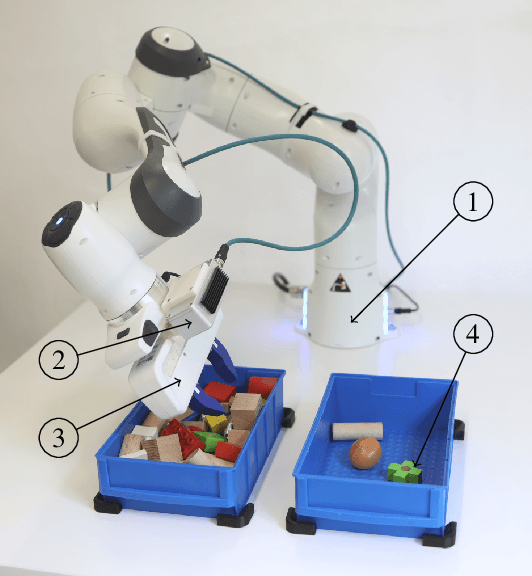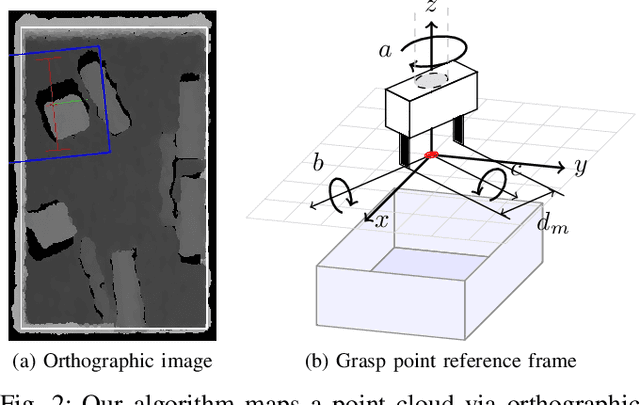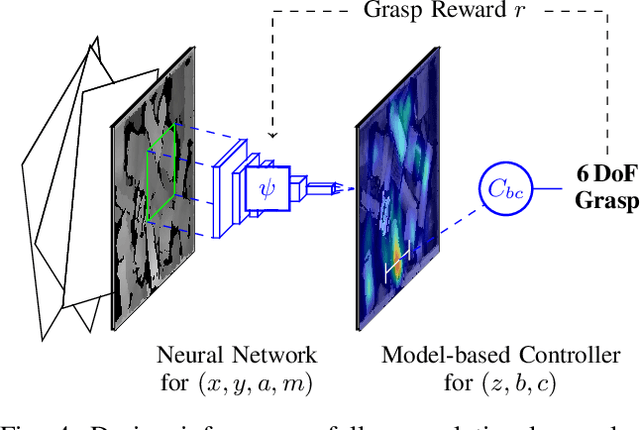Robot Learning of 6 DoF Grasping using Model-based Adaptive Primitives
Paper and Code
Mar 23, 2021



Robot learning is often simplified to planar manipulation due to its data consumption. Then, a common approach is to use a fully-convolutional neural network to estimate the reward of grasp primitives. In this work, we extend this approach by parametrizing the two remaining, lateral Degrees of Freedom (DoFs) of the primitives. We apply this principle to the task of 6 DoF bin picking: We introduce a model-based controller to calculate angles that avoid collisions, maximize the grasp quality while keeping the uncertainty small. As the controller is integrated into the training, our hybrid approach is able to learn about and exploit the model-based controller. After real-world training of 27000 grasp attempts, the robot is able to grasp known objects with a success rate of over 92% in dense clutter. Grasp inference takes less than 50ms. In further real-world experiments, we evaluate grasp rates in a range of scenarios including its ability to generalize to unknown objects. We show that the system is able to avoid collisions, enabling grasps that would not be possible without primitive adaption.
 Add to Chrome
Add to Chrome Add to Firefox
Add to Firefox Add to Edge
Add to Edge